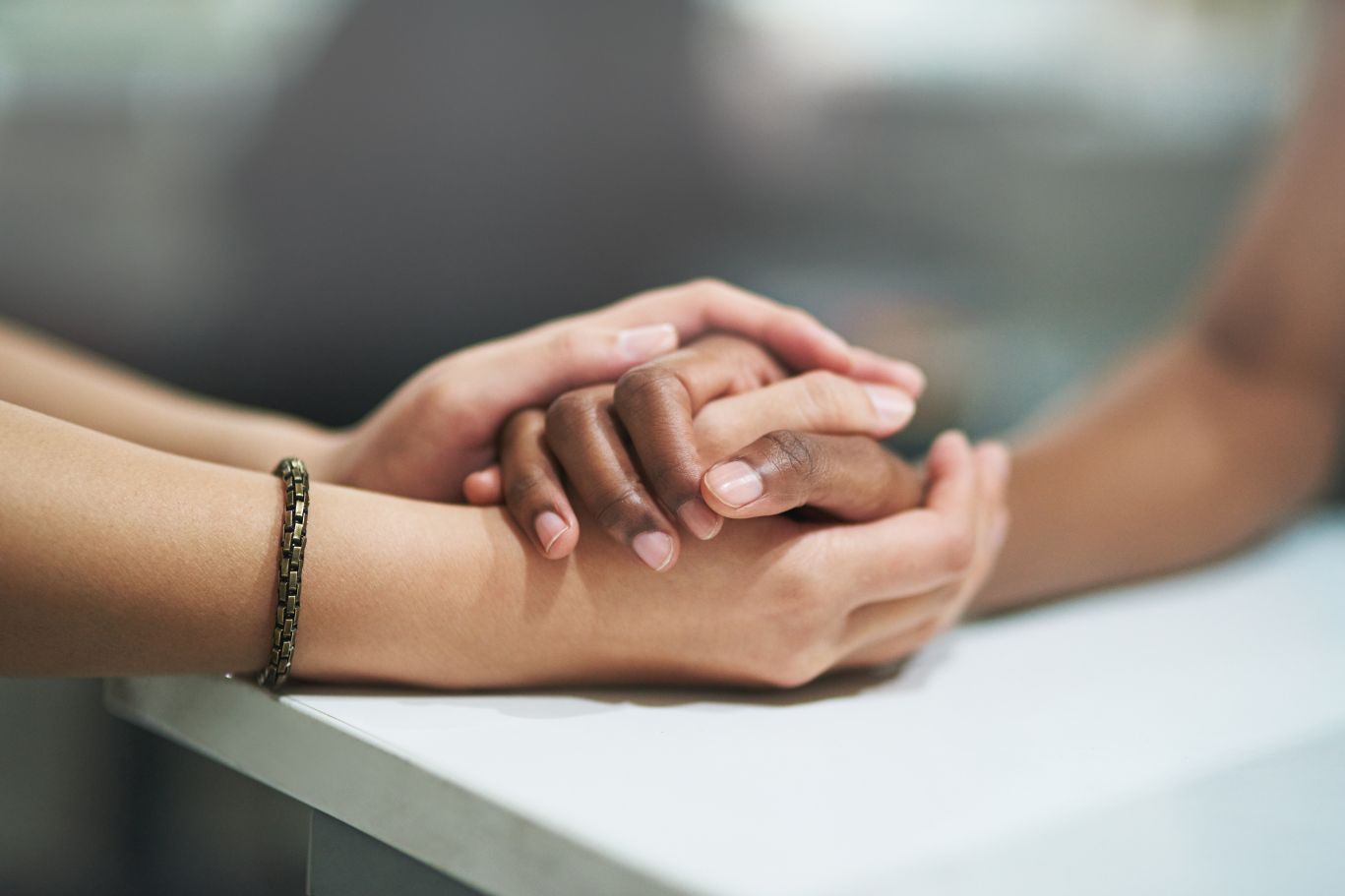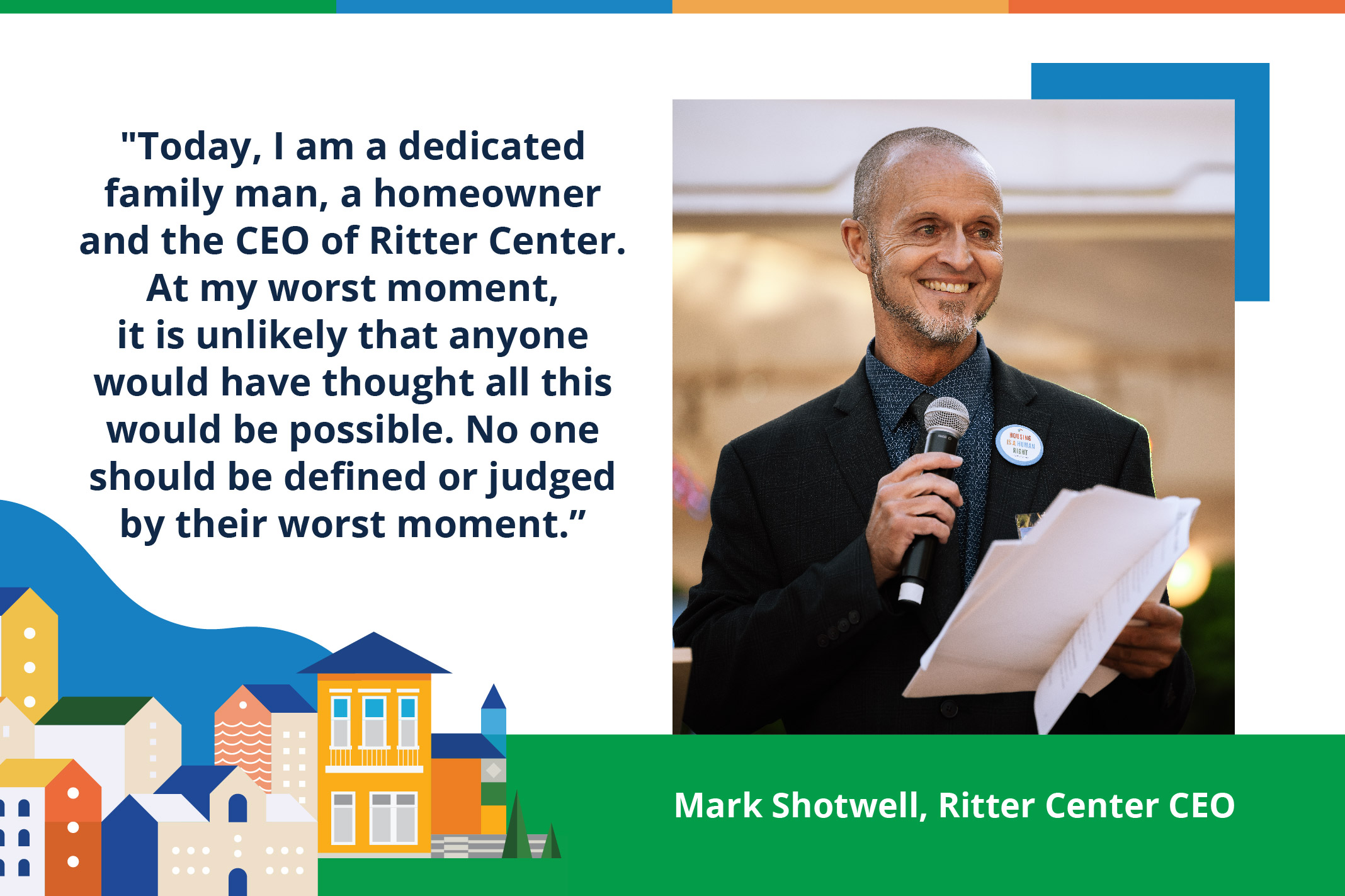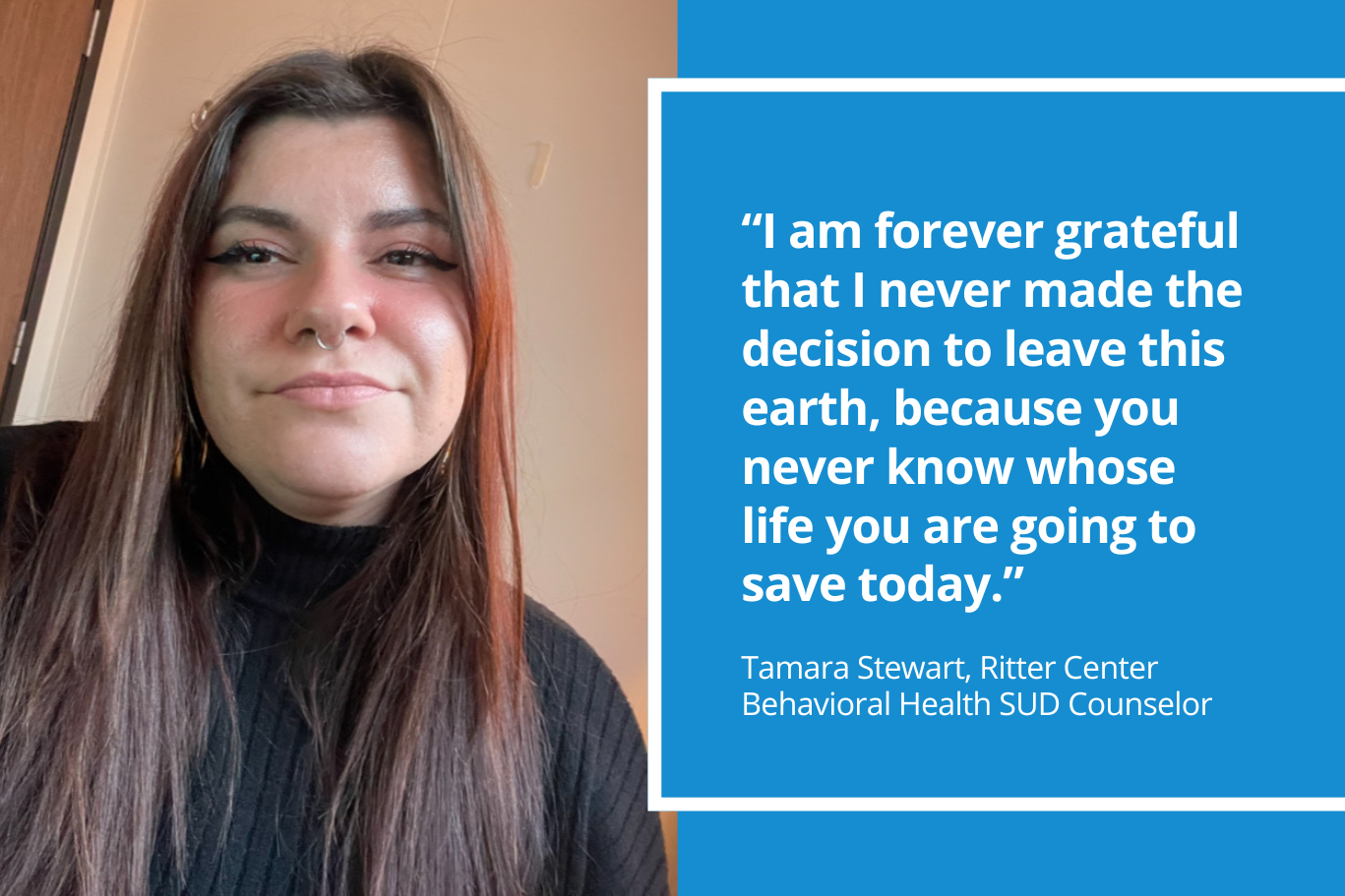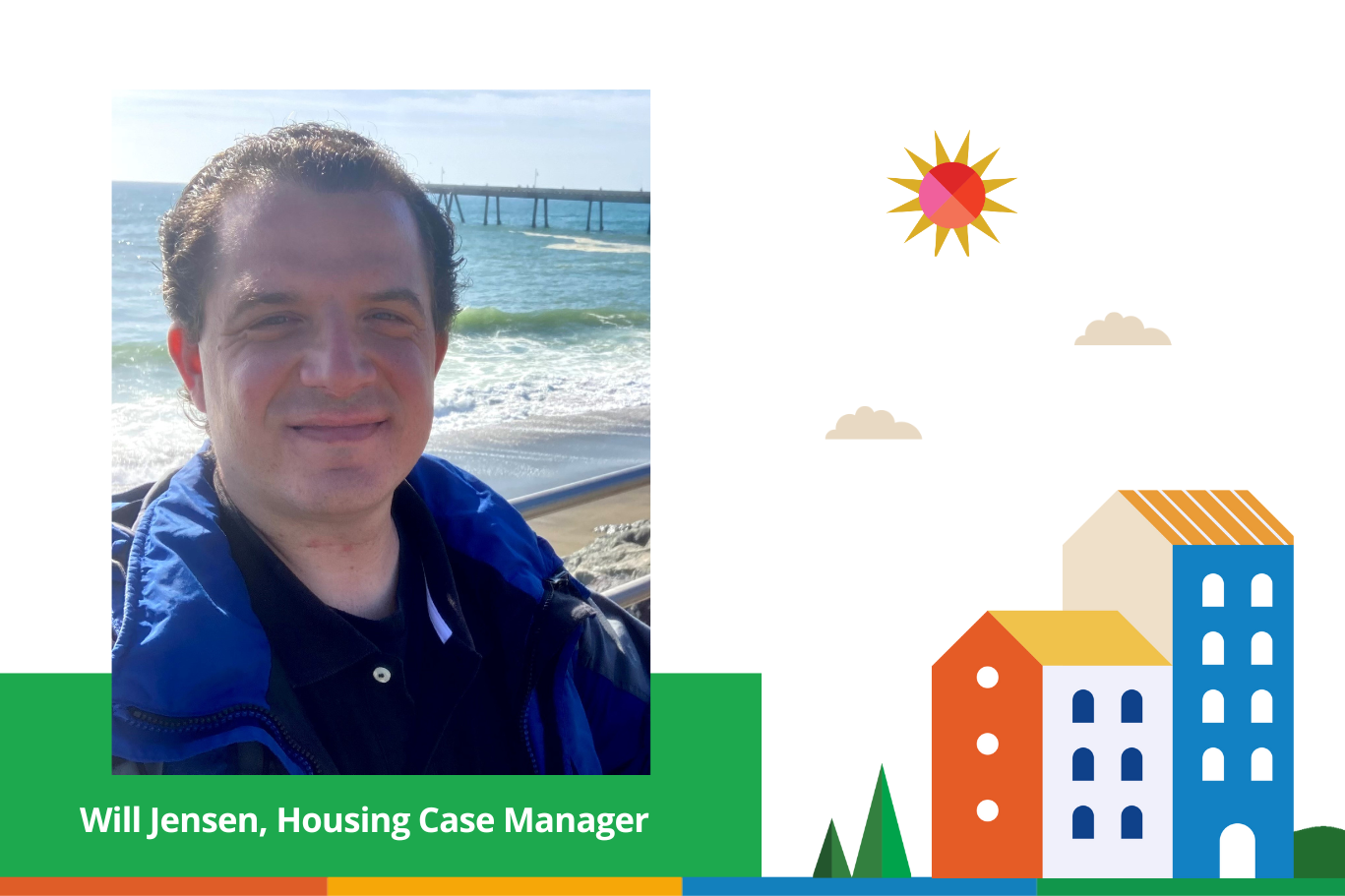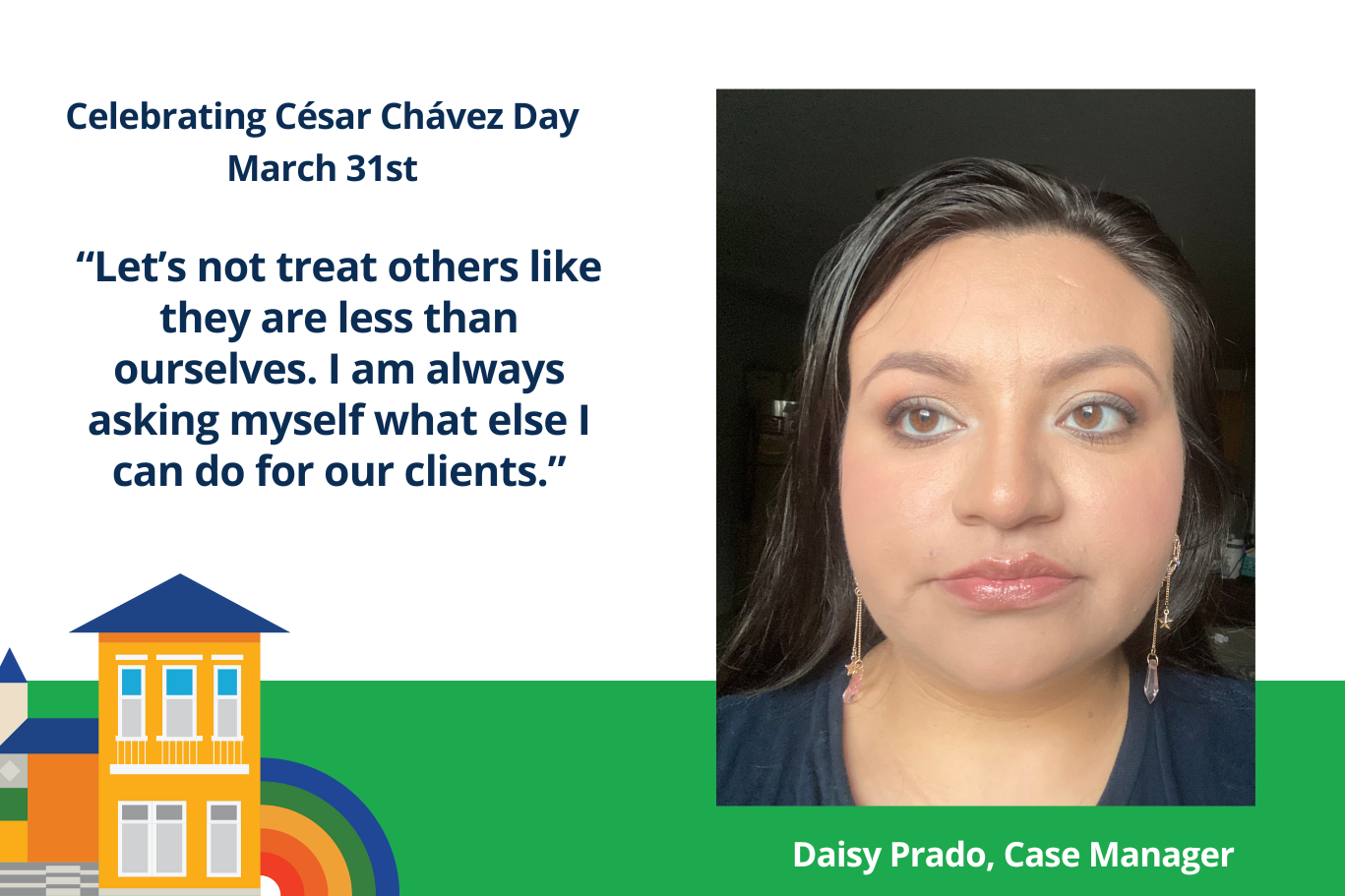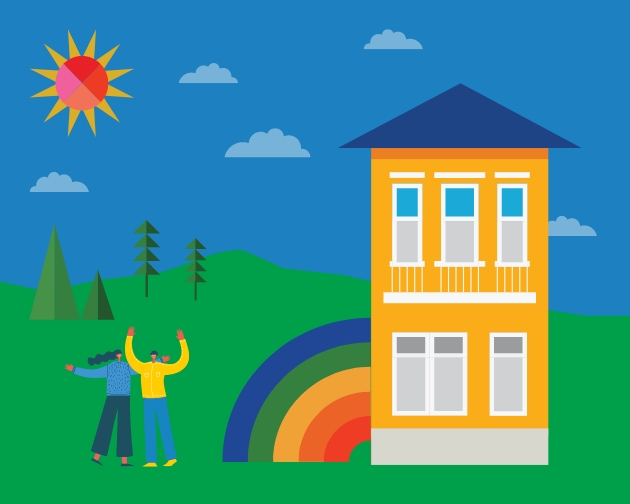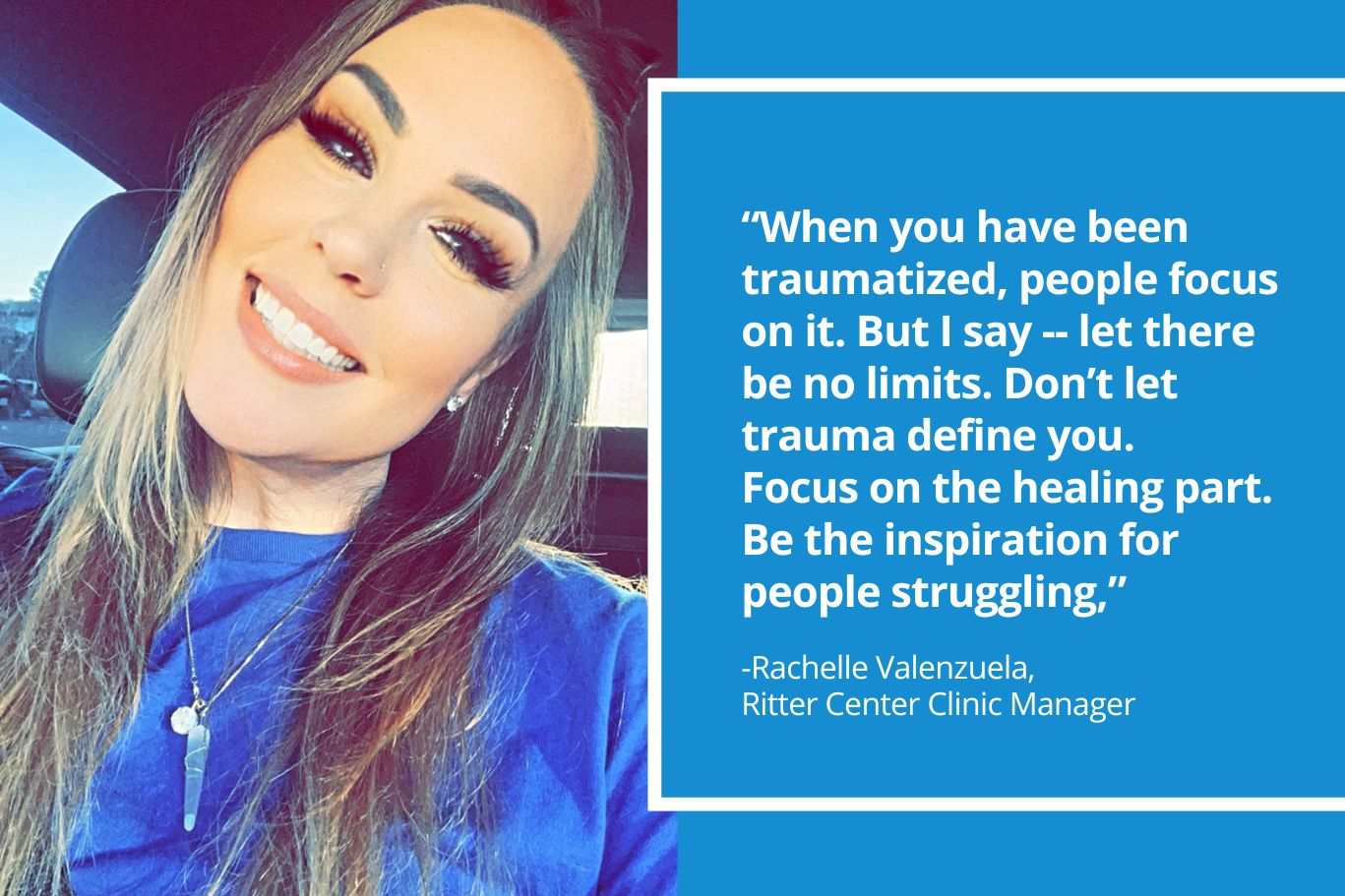
June Marks PTSD Awareness Month
Ritter Center is observing this month with an interview of Rachelle Valenzuela, Ritter Center Clinic Manager, who is bravely sharing her personal story of Post Traumatic Stress Disorder.
Approximately 5 out of every 100 adults has PTSD in any given year. Women are more likely to develop PTSD than men. This is in part due to the types of traumatic events that women are more likely to experience—such as sexual assault—compared to men.
Traumatic events—such as an accident, assault, military combat or natural disaster—can have lasting effects on a person’s mental health. While many people will have short term responses to life-threatening events, some will develop longer-term symptoms that can lead to a diagnosis of PTSD. Not everyone with PTSD has been through a dangerous event. Sometimes, learning that a friend or family member experienced trauma can cause PTSD. People who have PTSD may feel stressed or frightened, even when they are not in danger.
“Words are powerful and it can be difficult when the term PTSD is used in casual conversation without an awareness to how difficult this condition is for those who suffer from it. My own PTSD is heavily rooted in my traumatic childhood. Unfortunately, this was also followed by a series of challenging events throughout my lifetime,” shared Rachelle.
“PTSD doesn’t go away. I am still dealing with it and although I am considered ‘high functioning’ it doesn’t mean that I don’t still have to manage it daily.”
When activating events happen or the stress level in her life gets high, she knows that she will need to be especially aware of managing her mental health. The PTSD is always there lurking in the background. To cope, Rachelle has learned to focus on the small things that she can control. This gives her a little bit of relief from whatever might have triggered her on that particular day.
“I have learned and am still working on how to separate myself from the memories and the massive effect they can have on me, especially with my anxiety. Currently, I am exploring eye movement desensitization and reprocessing with my therapist and in doing the exercises so far, I am renewing coping skills I once used and sharpening those tools can only benefit me,” reflected Rachelle.
Horrifically, Rachelle experienced a sexual assault a year ago during a massage. “This could have been completely debilitating for me. But I had to work hard to put myself in gratitude,” emphasized Rachelle. “I have a house. I am sober. In fact, I am celebrating my 11th year in sobriety. I can hold on to that. I have so many things to be grateful for and to remind myself not to take things for granted which is easy to do.”
“I am humbled yet again — by both life events and the power of gratitude. This grounds me. I was once in a continual fight or flight state of life 24/7 from a history of abusive familial relationships,” stated Rachelle. “So now, when my symptoms pop up again, I know what to do to help myself. I can identify what’s happening and try to avoid what could be a trigger for relapse or a reactivation of severe anxiety. I no longer even think about going to a drug of choice for relief. Sure, escaping reality for a day is appealing, but I am stronger than ever. I am well equipped to replace that thought to say to myself what can I do to take a break today.”
Rachelle might choose to go to the beach, take a long drive, spend time at the dog park or just enjoy San Francisco. She knows that things she doesn’t normally do for herself can be incredibly important.
“I might have homework to do, but practicing self-care holds the key to maintaining where I’ve worked so hard to be. Even after the sexual assault, I had to pause. That was the one thing I had felt blessed to have never experienced. Then it happened. It was a most sobering moment. I went into survival mode and was numb for a week. Understandably, and as happens to so many victims, I checked out mentally. It’s called dissociation. I didn’t feel like myself for a week,” remembers Rachelle. “But I was able to bring myself home — back to myself. I told myself that I’ve been through so much, and that this is not what is going to crack me. I didn’t want things that happened to me to have the power to turn me into a victim.”
“When you have been traumatized, people focus on it. But I say — let there be no limits. Don’t let trauma define you. Focus on the healing part. Be the inspiration for people struggling,” described Rachelle passionately. “It is my ‘why’: it is for this reason that I manage the clinic, became a drug and alcohol counselor, and am currently in school to become a LMFT. With everything that has happened to me, I can be a vehicle to help people gain the strength to survive.”
Resiliency is the biggest focus for Rachelle. “If you can help people find resilience in their trauma or achieving sobriety to live a more full life in the present, then that can be the shift that creates the path forward. It opens a space to have bigger conversations that people are often too uncomfortable to have. If they succumb to a victim mentality, it can take them over.
But a perspective on something reveals a new lens. You can change your perspective on something negative that happens in your life,” she urged. “Ask the question: what can I learn from this? How did I get here? I can now empathize with women who have been sexually touched against their will. I truly understand what it does to your psyche. It could have destroyed me forever. But I wouldn’t be who I am today. When you have the privilege to walk through a crisis with someone, the heartfelt connection is so much deeper when you have been through it, too. It yields empathy and compassion on a whole new level. And that can lead to new ways of healing together.”
